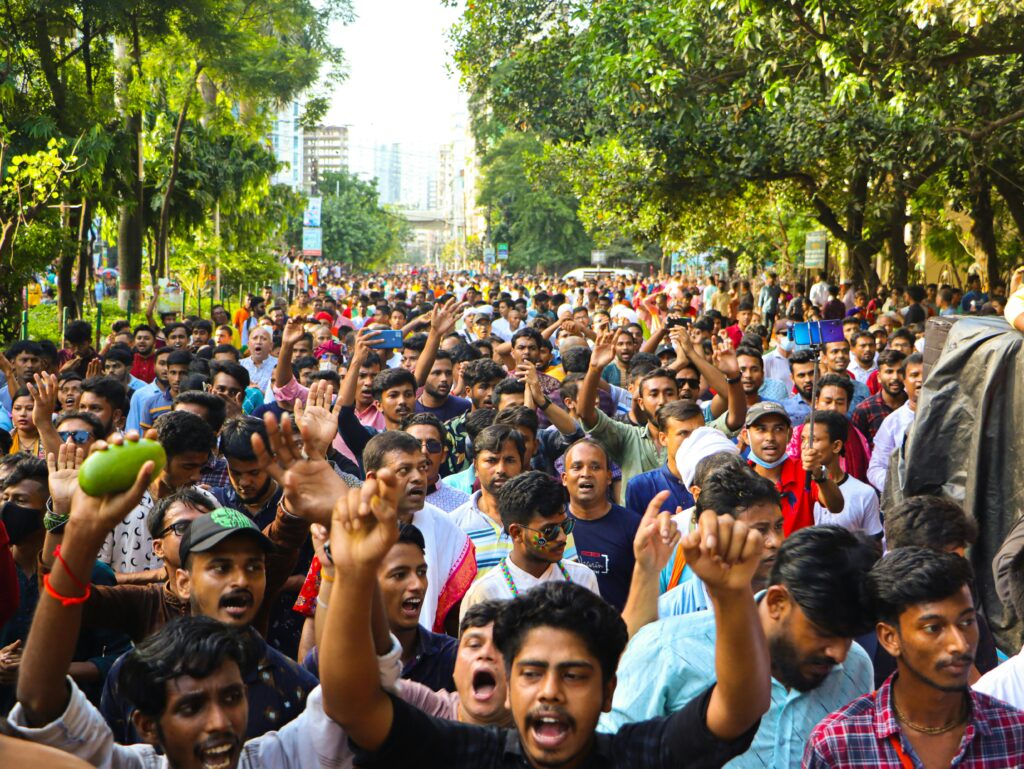Published on: 27th October, 2025
Authored by: Shubham Patil
Court: Supreme Court of India
Citation: W.P. (C) No. 494 of 2012; (2017) 10 SCC 1; AIR 2017 SC 4161
Bench: 9-Judge Bench comprising Chief Justice J.S. Khehar, Justices J. Chelameswar, S.A. Bobde, R.K. Agrawal, R.F. Nariman, A.M. Sapre, D.Y. Chandrachud, S.K. Kaul, and S.A. Nazeer
Date Decided: 24 August 2017
Petitioner: Justice K.S. Puttaswamy (Retd.)
Respondent: Union of India
Counsel for Petitioner: Shyam Divan, Kapil Sibal, Gopal Subramanium, K.V. Vishwanathan, P. Chidambaram, Arvind Datar, Meenakshi Arora, Sajan Poovayya
Counsel for Respondent: K.K. Venugopal, Rakesh Dwivedi, Tushar Mehta
Introduction
In the seminal case of Justice K.S. Puttaswamy (Retd.) and Another v. Union of India and Others (2017), the Supreme Court of India rendered a historic verdict affirming that the right to privacy constitutes a fundamental right under the Indian Constitution, specifically under Articles 14, 19, and 21. The lead petitioner, Justice K.S. Puttaswamy, a retired judge of the Karnataka High Court, challenged the constitutional validity of the Aadhaar scheme, which led to broader deliberations on privacy.
The matter was adjudicated by a nine-judge Constitution Bench comprising Chief Justice J.S. Khehar and Justices J. Chelameswar, S.A. Bobde, R.K. Agrawal, R.F. Nariman, A.M. Sapre, D.Y. Chandrachud, S.K. Kaul, and S.A. Nazeer. The Bench delivered a unanimous opinion holding that the right to privacy is inherent to the right to life and personal liberty under Article 21, and is also protected within the broader guarantees provided under Part III of the Constitution.
This judgment decisively overruled earlier precedents such as Kharak Singh v. State of Uttar Pradesh (1964) and M.P. Sharma v. Satish Chandra, District Magistrate, Delhi (1954), which had previously denied the existence of a constitutionally guaranteed right to privacy. The Court further elucidated that, like other fundamental rights, the right to privacy is not absolute and may be subject to reasonable restrictions only if there exists a legitimate and compelling interest of the State that justifies such interference.
Background
In 2012, Justice K.S. Puttaswamy, a retired judge of the Karnataka High Court, filed a writ petition before the Supreme Court challenging the constitutional validity of the Aadhaar scheme introduced by the Union government.
On 11 August 2015, a three-judge Bench comprising Justices J. Chelameswar, S.A. Bobde, and C. Nagappan directed that a Bench of suitable strength should revisit and reconsider the precedents set in M.P. Sharma v. Satish Chandra (1954)—decided by an eight-judge Bench—and Kharak Singh v. State of Uttar Pradesh (1964)—decided by a six-judge Bench. The Court specifically mandated a determination on whether the right to privacy is recognized as a fundamental right under the Constitution.
Initially, the case was assigned to a five-judge Bench led by then Chief Justice Khehar. However, on 18 July 2017, the matter was referred to a nine-judge Constitution Bench consisting of Chief Justice Khehar along with Justices J. Chelameswar, S.A. Bobde, D.Y. Chandrachud, S.A. Nazeer, R.F. Nariman, R.K. Agrawal, A.M. Sapre, and S.K. Kaul. The hearings commenced on 19 July 2017 and concluded on 2 August 2017.
Brief Facts
In 2012, Justice K.S. Puttaswamy, a retired High Court judge, filed a petition before the Supreme Court challenging the constitutional validity of the Aadhaar scheme. The petition contended that the scheme infringed upon the right to privacy. Given conflicting precedents on whether privacy constitutes a fundamental right under the Indian Constitution, the matter was referred to a nine-judge Constitution Bench for authoritative determination.
Key Issues in the Case
The Supreme Court in Justice K.S. Puttaswamy (Retd.) v. Union of India examined the following core constitutional questions:
1. Whether the precedent laid down in M.P. Sharma v. Satish Chandra (1954), which concluded that the right to privacy was not a fundamental right, remained legally sustainable.
2. Whether the ruling in Kharak Singh v. State of Uttar Pradesh (1964), which also denied the recognition of privacy as a fundamental right, warranted reconsideration and reversal.
3. Whether the right to privacy is inherently embedded within the right to life and personal liberty under Article 21, and whether it forms an essential component of the fundamental freedoms enshrined in Part III of the Constitution.
Constitutional Provisions and Statutory Framework
This case engages several key constitutional provisions:
1. Article 14 — guarantees the right to equality before the law and equal protection of the law.
2. Article 15 — prohibits discrimination by the State on the grounds of religion, race, caste, sex, or place of birth.
3. Article 16 — ensures equality of opportunity in matters relating to public employment.
4. Article 19(1)(a) — secures the freedom of speech and expression.
5. Article 21 — protects the right to life and personal liberty, including the autonomy and dignity of the individual.
6. The Aadhaar (Targeted Delivery of Financial and Other Subsidies, Benefits and Services) Act, 2016 — provides the statutory basis for the Aadhaar scheme, allowing the State to collect biometric and demographic data for the purpose of efficient delivery of subsidies and services.
Arguments of the Parties
Petitioner’s Argument
The petitioners contended that the right to privacy is inherently embedded within the right to life and personal liberty as guaranteed by Article 21 of the Constitution, and forms an integral component of the fundamental rights enshrined in Part III. Accordingly, it was argued that such a right merits constitutional protection.
Further, the petitioners urged the Court to reconsider the correctness of the earlier decisions rendered in Kharak Singh v. State of Uttar Pradesh and M.P. Sharma v. Satish Chandra, contending that these rulings are inconsistent with the recognition of privacy as a fundamental right under Article 21.
Respondent’s Argument
The respondents contended that the Constitution of India does not expressly recognize the right to privacy as a fundamental right. On this basis, it was argued that Article 21, which guarantees the right to life and personal liberty, was not applicable in the context of the rulings in M.P. Sharma v. Satish Chandra and Kharak Singh v. State of Uttar Pradesh, as those cases correctly held that privacy was not a constitutionally protected right.
Decision
The Supreme Court unequivocally declared that the right to privacy is safeguarded as a fundamental right under the Constitution of India.
The rulings in M.P. Sharma and Kharak Singh, which previously held that privacy is not a constitutionally protected right, were expressly overruled.
The subsequent judicial pronouncements post-Kharak Singh, which affirmed the status of privacy as a fundamental right, were upheld as correctly stating the constitutional position.
Reasoning
The Supreme Court undertook a comprehensive analysis of the development of the doctrine of privacy within the Indian legal framework, grounding its reasoning in constitutional provisions and the evolving jurisprudence surrounding dignity and fundamental rights. It concluded that privacy is inherently linked to individual freedom and autonomy, forming an essential component of the right to life as guaranteed under Article 21 of the Constitution.
The Court referred to earlier precedents, including Kharak Singh and Gobind v. State of Madhya Pradesh, to trace the recognition of privacy within constitutional interpretation. It further stated that any action infringing upon the right to privacy by an entity falling within the definition of “State” under Article 12 must meet the constitutional standards governing the specific fundamental right under Part III that is being impacted.
The Bench categorically overruled M.P. Sharma and the earlier view in Kharak Singh, which had denied constitutional protection to the right to privacy. It held that privacy is a fundamental, inalienable right embedded within Part III of the Constitution. Moreover, the Court emphasized that any legislative measure that seeks to limit this right must be reasonable and proportionate, and such limitations would be subjected to judicial scrutiny based on the test of reasonableness.
Impact
The Supreme Court’s ruling in this matter carries significant constitutional and legal consequences for the recognition and enforcement of the right to privacy in India. Widely regarded as a landmark judgment, it affirms that privacy constitutes a fundamental right under the Indian Constitution. This pronouncement has wide-ranging ramifications, notably in relation to the Aadhaar scheme—India’s biometric identity initiative—as well as concerning the broader regulatory framework governing the collection, processing, and use of personal data by both governmental authorities and private entities.
Conclusion
Justice K.S. Puttaswamy (Retd.) v. Union of India stands as a landmark decision in Indian constitutional jurisprudence, wherein the Supreme Court unequivocally recognized the right to privacy as a fundamental right. The case engaged with critical questions pertaining to personal autonomy, the limits of state surveillance, and the preservation of individual liberties, while also overruling earlier precedents that had failed to acknowledge privacy as constitutionally protected.
The judgment reaffirmed the essential role of privacy in a democratic society and laid the groundwork for progressive developments in areas such as data protection, sexual orientation, and reproductive autonomy. By elevating privacy to the status of a fundamental right, the Court strengthened safeguards against arbitrary intrusion by the State into the private sphere of individuals. This ruling continues to serve as a constitutional bulwark for personal freedoms and remains a foundational authority in shaping both legal norms and social policy in India.
References
1. ‘Puttaswamy v. Union of India’ Wikipedia (28 May 2025) https://en.wikipedia.org/wiki/Puttaswamy_v._Union_of_India accessed 28 May 2025.
2. ‘Fundamental Right to Privacy’ Supreme Court Observer (14 April 2025) https://www.scobserver.in/cases/puttaswamy-v-union-of-india-fundamental-right-to-privacy-case-background/ accessed 28 May 2025.
3. ‘K.S. Puttaswamy (Retd.) v. Union of India (2017)’ LawLex (14 April 2025) https://lawlex.org/lex-bulletin/case-summary-k-s-puttaswamy-retd-v-s-union-of-india-2017/18929 accessed 28 May 2025.
4. ‘Justice K.S. Puttaswamy (Retd.) & Anr. v. Union of India & Ors. [Aadhaar Case]’ LawBhoomi (20 March 2025) https://lawbhoomi.com/justice-k-s-puttaswamy-retd-anr-v-union-of-india-ors/ accessed 28 May 2025.
5. Dhiraj Kumar Saw, ‘Case Analysis: Justice K.S. Puttaswamy (Retd.) and Anr. v. Union of India and Ors. (2017) 10 SCC 1′ Jusscriptum Law (30 November 2023) https://www.jusscriptumlaw.com/post/case-analysis-justice-k-s-puttaswamy-retd-and-anr-vs-union-of-india-and-ors-2017-10-scc-1 accessed 28 May 2025.
6. Justice K.S. Puttaswamy (Retd.) and Anr. v. Union of India and Ors. (2017) 10 SCC 1 https://www.casemine.com/judgement/in/599ec2f64a932638c63eef1e accessed 28 May 2025.




